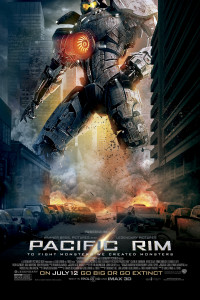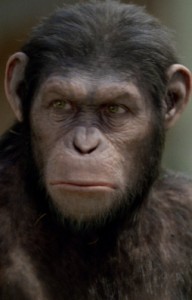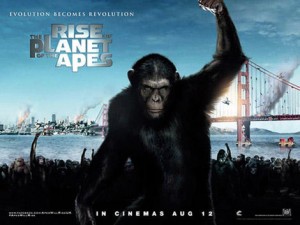Last weekend I took in what’s become a cultural staple of Portland, Trek in the Park, an annual performance of an original series Star Trek episode in, well, a park. It’s become something of a massive cultural juggernaut and this year, regrettably, is the last time that theater group Atomic Arts is doing the performance. They went out with a bang, though, performing the Trouble with Tribbles, one of the best-known Trek episodes. It had been a while since I’d seen it, but watching it performed live this past weekend really drove home what Star Trek is about. Tribbles may not be the greatest Trek episode ever (that’s either The Best of Both Worlds or Balance of Terror) but it’s a fantastic episode that sums up what Star Trek‘s all about.
The episode is very much a slice-of-life portrait of what it means to live in space, deal with space problems, and have a space job where you have to do space things. Kirk tangles with an annoying Starfleet bureaucrat, is forced to be cordial with Klingons, disciplines a number of his subordinates for getting in a bar fight, and investigates a shifty merchant selling dubious merchandise. Kirk doesn’t give any inspiring speeches, call for a red alert, or ever command the Enterprise in combat. Throughout the Trouble With Tribbles Kirk (along with Spock) simply does his job, executing his duties as an administrator. That’s precisely what makes Tribbles such good television, though. We get to see the characters breathe and do things other than just dive into the kind of heavy situation that would be suitable for a movie plot. A big part of Trek’s appeal is its hugely detailed world, and in Tribbles we get to see people simply live in it. Along with Kirk we also get to see McCoy doing doctor things at the tribbles, Lurry (the manager of the station where much of the action takes place) dealing with the Federation and Klingons simultaneously visiting his station, and Cyrano Jones (the sleazy space merchant) trying to make a living by hustling exotic animals and artifacts. We also get to learn that Scotty reads technical journals for fun, which is kind of endearing.
The regular problems and issues of life in outer space are the heart of Star Trek. While the show has had its fair share of action sequences (I do love seeing Kirk fight a gorn) it’s really always been a show about problem solving. The crew gathers to discuss an issue, either on the bridge or in a conference room, susses out just what precisely is going on, and eventually come up with a course of action to deal with it, usually involving the application of technology, medicine, diplomacy, or lateral thinking. The motivations of the characters generally have very little to do with their own survival, avarice, emotional problems, or self-betterment. Most often, Trek‘s characters are grappling with the issues at hand either to pursue knowledge or make the galaxy a slightly better place.
If there is action, it’s usually to just show us the stakes. Torpedoes are firing, so it’s important to come to a solution quickly. People are dying, so it’s necessary to science or diplomatize as fast as possible. Action in Star Trek is generally auxiliary to the main plot, rather than something pursued in and of itself. Trek‘s usually at its most awkward when it attempts to be an action movie, rather than a thinky show. Probably my least favorite part of Trek is the string Next Generation movies which (with the kinda-sorta exception of First Contact) generally fell flat because they tried to turn Picard into John McClane. Insurrection and Nemesis were embarrassing failures not just because they were bad Star Trek, but because they seemingly forgot what Star Trek‘s about.
The emphasis on action and de-emphasis on problem solving is precisely what’s missing from J. J. Abrams’ current version of Trek. The two Star Trek movies that have come out so far have done a good job of re-creating the characters (especially Zachary Quinto as Spock) and are both perfectly fine action movies that happen in space. I want to emphasize, in no uncertain terms, that I enjoyed them as space adventure movies. However, Star Trek isn’t just about high-stakes movie action. Very often, it’s about put-upon administrators who just want their space station to work right, annoying interplanetary bureaucrats, and troublesome alien furballs that breed constantly. It’s about the weird stuff you find in the great unknown reaches, the unforeseen problems, big and small, that come with discovery, and the great panoply if life and phenomena that could be somewhere out there. The great unknown does not always need to threaten your life and limb, declare war upon you, or present an insurmountable menace. Sometimes it’s enough for that unknown to just grow fur, coo at you, and eat your chicken sandwich.
Bonus! My wonderfully multitalented girlfriend, Sarah, was tasked with taking the official photograph of the cast. Check it out.





